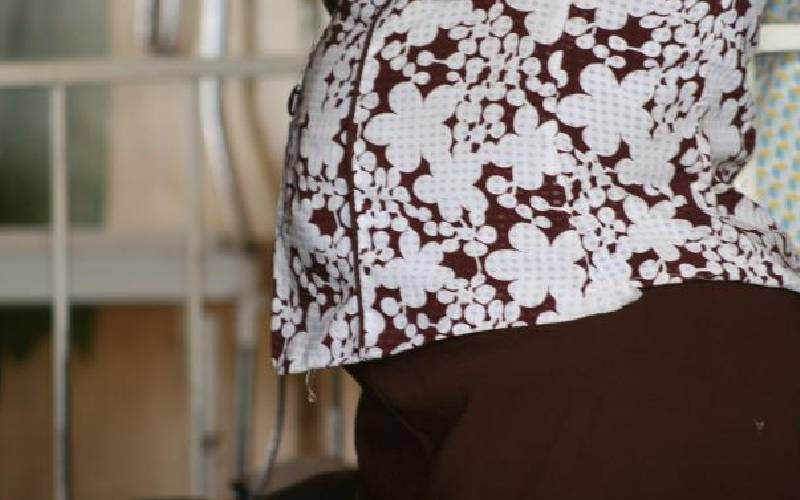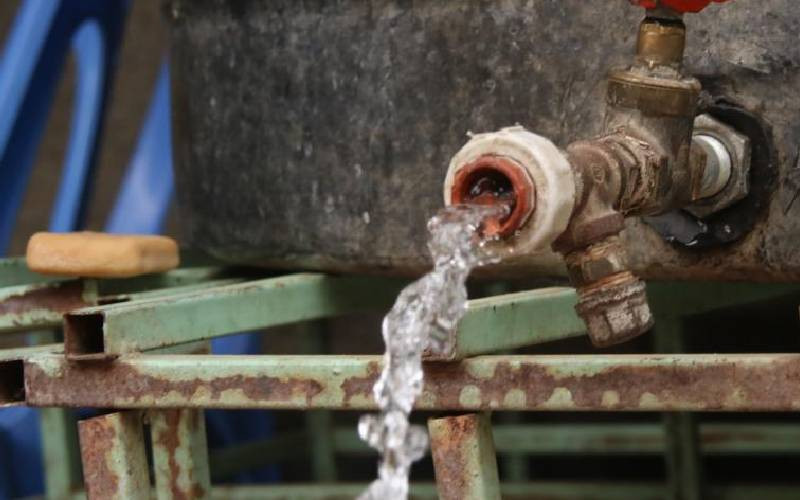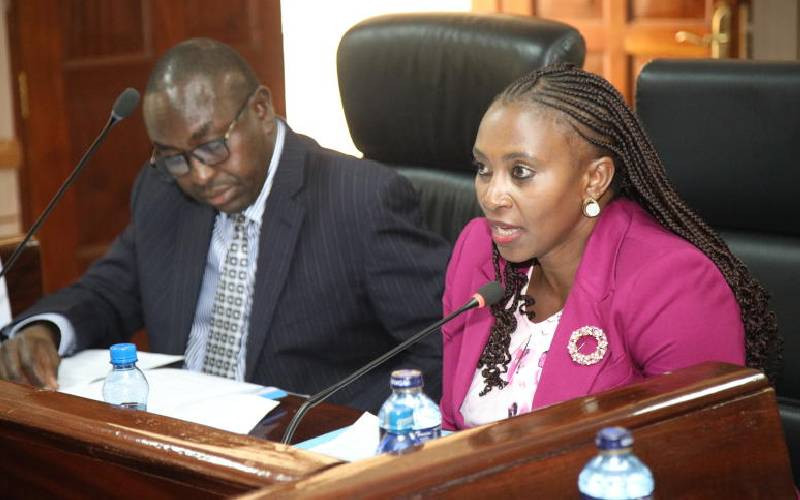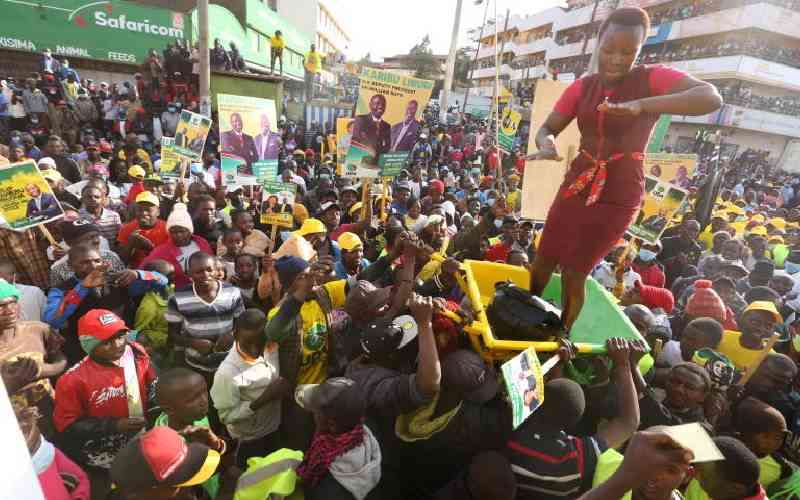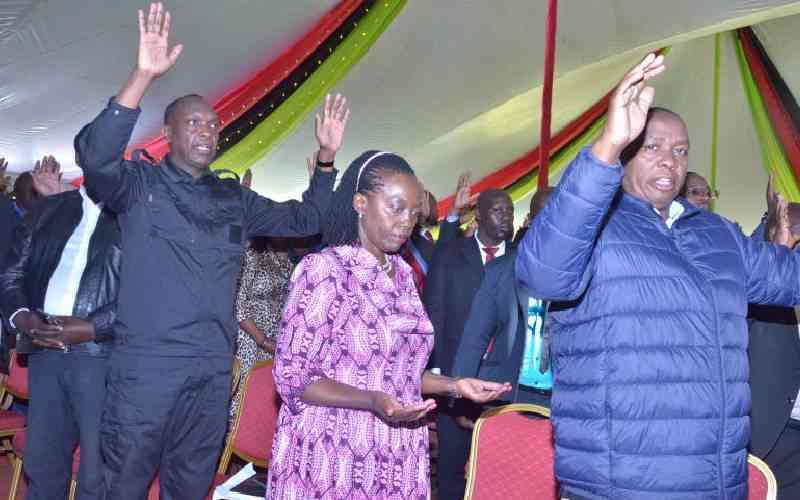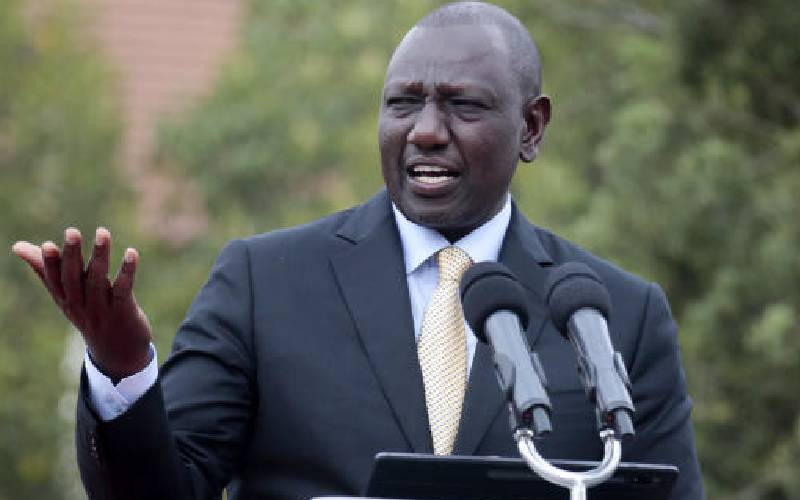
The resistive forces against the Finance Bill 2024 have been fast and furious. Yet, the country’s CEO still fancies some Sh5 trillion somewhere out here that patriots refuse to surrender to the State.
But what for? Echoing the cry of a cab driver I hailed earlier this week, where does this government take all the money we already pay them? How much more will be enough for them to give us a break to pursue our individual and collective economic endeavours?
More annoyingly, even before the ramifications of the proposed extra taxes sink into our minds, news emerges of absurd budget requests by the two highest offices in the land. For instance, how on earth can 16 per cent VAT on ordinary bread compete for the headlines with a Sh1.2 billion budgetary request under Article 223 on emergency spending to renovate the office and residence of the Deputy President?
This is in addition to Sh1.2 billion to run spousal offices that by all intentions and purposes are not only strangers to the laws of the land, but also whose public utility to the nation is highly debatable. State House’s renovation budget itself has become an ever-moving target, now at Sh11.5 billion from an initial figure of about Sh1.2 billion. This is after surpassing its annual budget by more than Sh200 million barely into the third quarter of the fiscal year.
In the circumstances, it is very difficult for any sane Kenyan to fail to wonder whether this is the best that a Sh1.1 billion per year economic advisory team can offer to the nation. While the proposed tax measures remain suggestions until the Finance Bill is formally approved by Parliament and assented to by President William Ruto, this debate raises pertinent questions that must shape the conversation around it.
One, is the 14 per cent tax revenue to GDP ratio a plausible argument or a fallacy out of ignorance of sound economic logic and interpretation of economic indicators? Two, does tax money come from the people or is it a function of economic activity? Three, to what extent do the billionaire and millionaire statuses of the Cabinet team impair their judgement as to the true state of both the economy and socio-economic welfare of the people they lead? And four, how much in actual taxes do the top political leaders declare and pay in taxes, other than hiding only on their payslip associated tax?
If Kenyans are to board into this doomed gross tax voyage, is it not only fair for the President and his men to make public full disclosure of actual tax paid to lead by example? Otherwise, why should any other person believe them?
- State set to publish new health insurance charges
- Taking care of you: Mental well-being in a constantly changing world
- Government committed to increase AIDs funding
- Ruto: Universal health plan is unstoppable
Keep Reading
By now, the majority of folks are aware that the Treasury CS has declared ordinary bread a middle-class luxury good that must attract VAT from July. All vehicle owners know it’s almost a done deal that soon, it will be an economic sin to own a vehicle on the land. Those who desire to participate in the country’s capital markets, the popular tax-free entry point of government infrastructure and Climate-resilient bonds will be shut as soon as the Bill becomes law.
While it is not practical to enumerate all the tax measures in this article, the VAT tax proposals in the bill have gone hard on financial services, mobile communication services, tourism, education and specialised hospital-related materials and services. VAT exempt or zero-rated status on a majority of goods and services has been revised under the current proposals. The bill only goes easy on VAT for agricultural inputs/supplies.
Curiously, the bill seeks to make amendments to a section of the Affordable Housing Act, even before the ink that signed it into law dries up. This is besides the ambiguity that is emerging from the implementation of the Housing levy. Small businesses are waking up to the fact that in addition to a three per cent turnover tax, they shall be required to load another 1.5 per cent levy on gross sales.
Tenants are facing the possibility of indirectly shielding the burden of the housing levy from their landlords. In July, the Social Health Insurance Fund is set to knock off another 2.5 per cent on the gross of employees' payslips.
Joshua Rauh and Gregory Kearney in an article on taxation, individual actions and economic prosperity posted on the Hoover Institute earlier this year argue on the limitation of taxation in driving growth.
According to this article, economists have over the years been able to calibrate economic models that can help governments derive revenue maximising marginal tax rates. However, society cannot be taxed at those rates without foregoing massive economic output and prosperity. This is because economic activity is significantly reduced or driven abroad, and the remaining spending power gets concentrated in the government.
This is the precise predicament that the president has trapped himself in. While it is okay to fancy a 22 per cent tax revenue to GDP ratio, that cannot happen in a vacuum. Arguing that Kenyans have been socialised to think that they are overtaxed in comparison to other developed societies is ‘manifesto’ nonsense.
At individual and household levels, we are living through the hell of this mindless taxation. Our payslips and shopping receipts bear the scars of the burden of taxation in the country.
The business community have their own tales that no one in authority seems to care to listen.
It is time somebody faced the king squarely and made it plain clear that people and businesses do not pay taxes; rather, taxes come from the profits of economic activities within the economy.
It is a healthy economy that creates jobs for its citizens, not presidents of foreign countries. On this primary responsibility, the president owes the country and her people a duty of care!
A commentary posted on the Economic Policy Institute of the USA in 2009 on how taxes could promote prosperity; makes it clear that taxes, for the most part, must get out of the way of economic activity.
As per this article, economic policy advisory is desired to provide a president with options and recommendations to promote economic growth, create jobs and improve long-term prosperity.
Based on this prognosis, tax policy is only one tool that can be used to promote economic growth, but certainly, it is not the most important. Public investments in areas such as education, basic research and national infrastructure; together with good labour market and trade policies post better economic outcomes in the long term. On their part, tax policies are largely meant to raise adequate revenues to finance public investments and other national priorities.
Thus, taxation cannot be the end goal in itself. This is because tax policy choices reach into individual and business decision-making that can influence economic activity directly for better or for worse.
What is so funny in killing local businesses and investments through taxation, and at the same time purporting to auction your own citizens for cheap labour abroad?
What is so novel in cutting school feeding and educational insurance policy programmes for poor children in the country, only to splash the billions to finance wanton luxuries for the two seniormost men in the country?
 The Standard Group Plc is a multi-media organization with investments in media platforms spanning newspaper print
operations, television, radio broadcasting, digital and online services. The Standard Group is recognized as a
leading multi-media house in Kenya with a key influence in matters of national and international interest.
The Standard Group Plc is a multi-media organization with investments in media platforms spanning newspaper print
operations, television, radio broadcasting, digital and online services. The Standard Group is recognized as a
leading multi-media house in Kenya with a key influence in matters of national and international interest.

